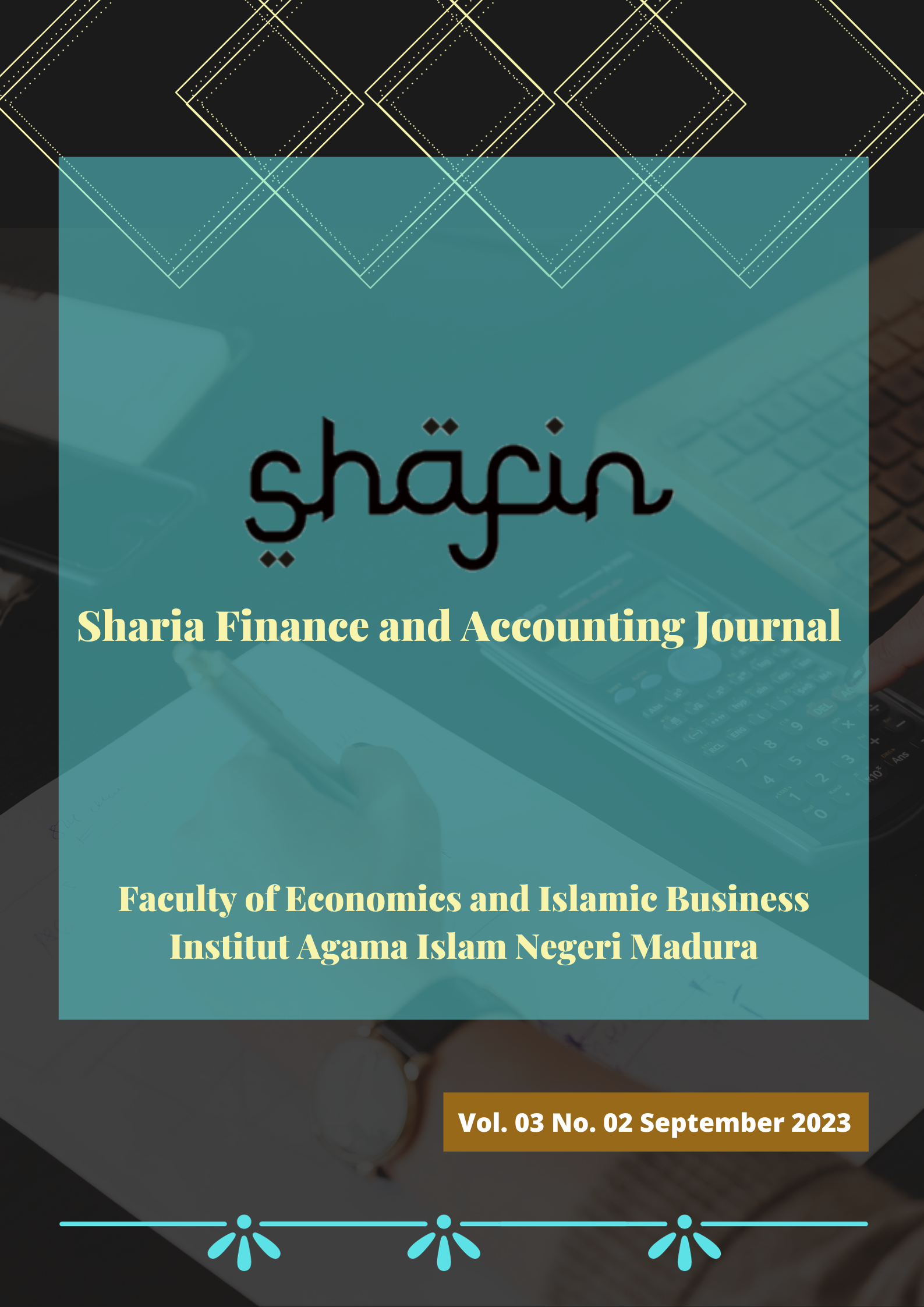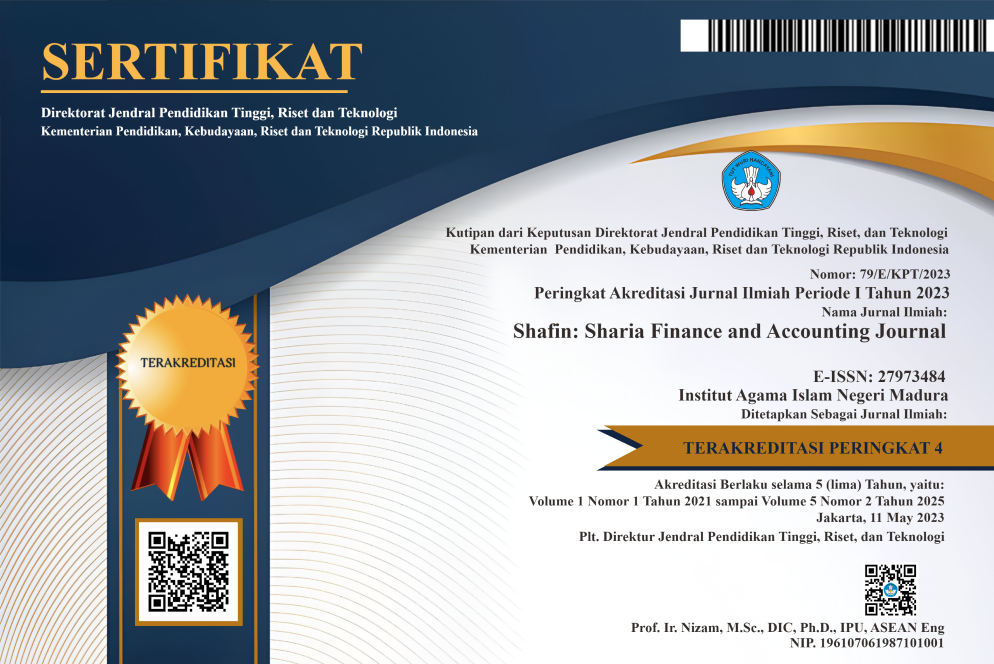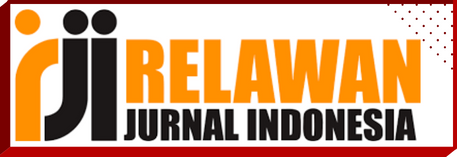Responsibility as the Spirit of Zakat Accounting Practices: Islamic Ethnomethodology Study
 Abstract views: 174
,
Abstract views: 174
,
 PDF downloads: 140
PDF downloads: 140
Abstract
This study aims to reveal the local cultural values of zakat fitra accounting practices. This research uses the Islamic paradigm. The approach used is Islamic ethnomethodology. There are five data analysis stages: charity, knowledge, faith, revelation information, and courtesy. The results of the study indicate that there is a value of responsibility behind the accounting practice of distributing zakat fitra. This value is reflected through the actions of the amil zakat, who use data from the government, data and advice from residents about citizens who are entitled to receive zakat fitra, amil zakat coordinators who distribute zakat not only to less fortunate citizens but amil officers who are by the Shari'a Islam. As well as the decision of the amil to distribute zakat funds three days before Eid al-Fitr. It is intended that zakat recipients can use these funds to meet their needs. In the Islamic culture of Gorontalo, the value of responsibility is often advised through the expression (lumadu) "eya dila pito-pito'o" meaning God does not close his eyes. This phrase means that whatever we do, Allah is always watching.
Downloads
References
Anwar, Fitria, Tri Handayani Amaliah, and Sahmin Noholo. ‘Internalisasi Nilai-Nilai Budaya Gorontalo “Rukuno Lo Taaliya” Dalam Penetapan Harga Jual Pada Pedagang Tradisional Di Kota Gorontalo’. Jurnal Akuntansi & Auditing 12, no. 2 (2015): 89–109. https://doi.org/10.14710/jaa.12.2.110-122.
Ariyanto, Dodik, Maria M Ratna Sari, and Ni Made Dwi Ratnadi. ‘Budaya Tri Hita Karana Dalam Model UTAUT’. Jurnal Akuntansi Multiparadigma 8, no. 2 (2017): 399–415. https://doi.org/10.18202/jamal.2017.08.7062.
Ariyas, Syah Risaldi, Khairil Fathir, Muhammad Apep Mustofa, and Casilam Casilam. ‘Analisis Penerapan PSAK 109. Tentang Akuntansi Zakat, Infak Dan Sedekah Pada Lembaga Amil Zakat Baitul Maal Hidayatullah (BMH) Jakarta’. Jurnal Neraca … 3, no. 1 (2023): 16–22. https://doi.org/10.55182/jnp.v3i1.241.
Creswell, W John. Penelitian Kualitatif Dan Desain Riset Memilih Antara Lima Pendekatan. Terjemahan. Ahmad Lintang Lazuardi. Yogyakarta: Pustaka Pelajar, 2014.
Daulima, Farha. Lumadu (Ungkapan) Sastra Lisan Daerah Gorontalo. Gorontalo: Galeri Budaya Daerah Mbu’i Bungale, 2009.
Faizal, Muhazzab Alief, Adi Basuki Choirul, Anita Febriani, and Binti Nur Asiyah. ‘Analisis Penerapan Psak 109 Pada Lembaga Zakat, Infaq Dan Shadaqoh’. Maro: Jurnal Ekonomi Syariah Dan Bisnis 6, no. 1 (2023): 169–78. https://doi.org/10.31949/maro.v6i1.3963.
Handoko, Daiyinta C.P, and Syamsul Huda. ‘Menilik Akuntabilitas Akuntansi Dari Budaya Islam’. Tirtayasa Ekonomika 13, no. 2 (31 October 2018): 330. https://doi.org/10.35448/jte.v13i2.4320.
Hanif. ‘(Re)Konstruksi Akuntansi Keuangan Bagi Hasil Sistem Mato’. Akuntansi Multiparadigma 8, no. 2 (2017): 227–43. https://doi.org/10.18202/jamal.2017.08.7051.
Harkaneri, Iwan Triyuwono, and Eko Ganis Sukoharsono. ‘Memahami Praktek Bagi-Hasil Kebun Karet Masyarakat Kampar Riau (Sebuah Studi Etnografi)’. Al-Iqtishad 1, no. 10 (2014): 14–38. https://doi.org/10.24014/jiq.v10i2.3115.
Ikatan Akuntan Indonesia. Pernyataan Standar Akuntansi Keuangan Nomor 109. Jakarta: IAI, 2011.
Kamayanti, Ari. Metodologi Penelitian Kualitatif Akuntansi: Pengantar Religiositas Keilmuan (Edisi Revisi). Penerbit Peneleh, 2020.
———. ‘Paradigma Penelitian Kualitatif Dalam Riset Akuntansi: Dari Iman Menuju Praktik’. Infestasi 11, no. 1 (2015): 1–10. https://doi.org/doi.org/10.21107/infestasi.v11i1.1119.
———. ‘“Sains” Memasak Akuntansi: Pemikiran Udayana Dan Tri Hita Karana’. Jurnal Riset Dan Aplikasi: Akuntansi Dan Manajemen 1, no. 2 (2015): 73–80. https://doi.org/10.18382/jraam.v1i2.16.
Maili, Mashadi. Suryani Wahidah. ‘Jaringan Islamisasi Gorontalo (Fenomena Keagamaan Dan Perkembangan Islam Di Gorontalo)’. Al-Ulum 18, no. 2 (2018): 435–58. https://doi.org/10.30603/au.v18i2.555.
Mathews, M.R., and M.H.B. Perera. Accounting Theory and Development. Melbourne,: Thomas Nelson Australia., 1993.
Mulya, Handri, Eko Ganis ukoharsono, Ali jamhuri, and Zaki Baridwan. Metode Penelitian Kualitatif, 2016.
Rahman, Yuyanti, Sahmin Noholo, and Ivan Rahmat Santoso. ‘Konsep Akuntansi Syariah Pada Budaya Mahar’. Jurnal Akuntansi Multiparadigma 10, no. 1 (2019): 82–101. http://dx.doi.org/10.18202/jamal.2019.04.10005 Jurnal.
Randa, Fransiskus, and Fransiskus E Daromes. ‘Transformasi Nilai Budaya Lokal Dalam Membangun Akuntabilitas Organisasi Sektor Publik’. Jurnal Akuntansi Multiparadigma 5, no. 3 (2014): 477–84. https://doi.org/: 10.18202.
Thalib, Mohamad Anwar. ‘Motoliango Sebagai Wujud Akuntansi Di Upacara Tolobalango Gorontalo’. Jurnal Bisnis Dan Akuntansi 24, no. 1 (2022): 27–48.
Triyuwono, Iwan. ‘Akuntansi Malangan: Salam Satu Jiwa Dan Konsep Kinerja Klub Sepak Bola’. Jurnal Akuntansi Multiparadigma 6, no. 2 (2015): 290–303. https://doi.org/10.18202/jamal.2015.08.6023.
Yusuf, A. Muri. Metode Penelitian Kuantitatif, Kualitatif & Penelitian Gabungan. Jakarta: Kencana, 2017.
Zahara, Hanifatus Syaidah, Meisya Zahra, Arini Prawita, Silvia Zahra Syahidah, and Elis Nurhasanah. ‘Akuntabilitas Dan Transparansi Lembaga Pengelola Zakat Melalui Zakat Core Principles Dan PSAK 109’. Jurnal Mutiara Ilmu Akuntansi (JUMIA) 1, no. 3 (2023): 31–43.
The journal operates an Open Access policy under a Creative Commons Non-Commercial Share-Alike license. All articles published Open Access will be immediately and permanently free for everyone to read and download.
• Creative Commons Attribution-NonCommercial (CC-BY-NC)

Shafin: Finance and Sharia Accounting Journal by http://http://ejournal.iainmadura.ac.id/index.php/shafin is licensed under a Creative Commons Attribution-NonCommercial 4.0 International License.
Based on a work at http://ejournal.iainmadura.ac.id.















